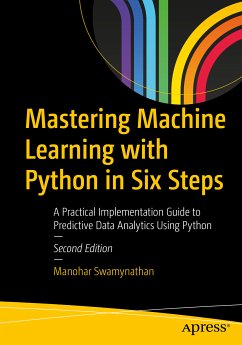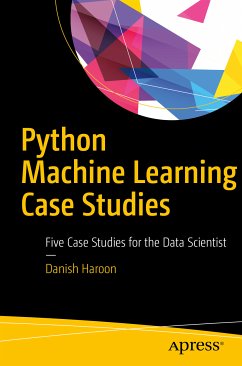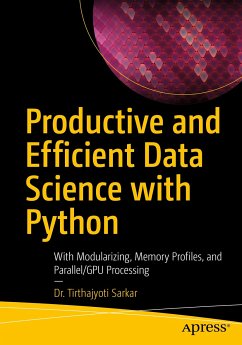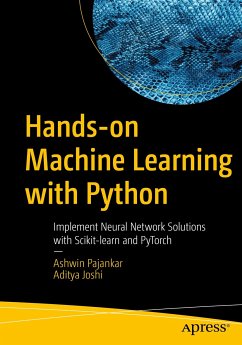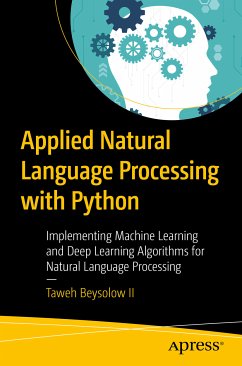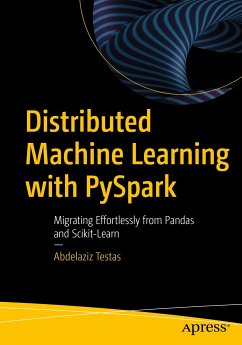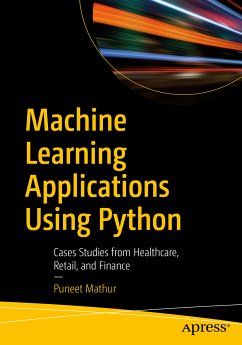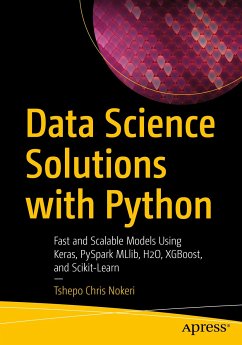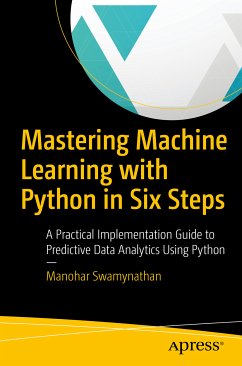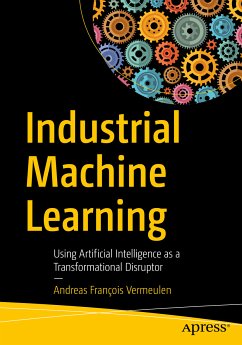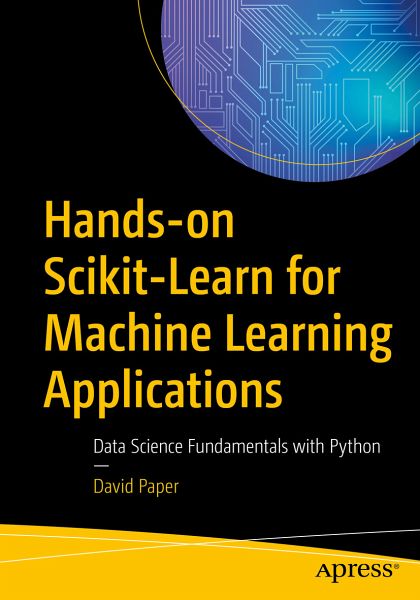
Hands-on Scikit-Learn for Machine Learning Applications (eBook, PDF)
Data Science Fundamentals with Python
Versandkostenfrei!
Sofort per Download lieferbar
43,95 €
inkl. MwSt.
Weitere Ausgaben:

PAYBACK Punkte
22 °P sammeln!
Aspiring data science professionals can learn the Scikit-Learn library along with the fundamentals of machine learning with this book. The book combines the Anaconda Python distribution with the popular Scikit-Learn library to demonstrate a wide range of supervised and unsupervised machine learning algorithms. Care is taken to walk you through the principles of machine learning through clear examples written in Python that you can try out and experiment with at home on your own machine. All applied math and programming skills required to master the content are covered in this book. In-depth kn...
Aspiring data science professionals can learn the Scikit-Learn library along with the fundamentals of machine learning with this book. The book combines the Anaconda Python distribution with the popular Scikit-Learn library to demonstrate a wide range of supervised and unsupervised machine learning algorithms. Care is taken to walk you through the principles of machine learning through clear examples written in Python that you can try out and experiment with at home on your own machine.
All applied math and programming skills required to master the content are covered in this book. In-depth knowledge of object-oriented programming is not required as working and complete examples are provided and explained. Coding examples are in-depth and complex when necessary. They are also concise, accurate, and complete, and complement the machine learning concepts introduced. Working the examples helps to build the skills necessary to understand and apply complexmachine learning algorithms.
Hands-on Scikit-Learn for Machine Learning Applications is an excellent starting point for those pursuing a career in machine learning. Students of this book will learn the fundamentals that are a prerequisite to competency. Readers will be exposed to the Anaconda distribution of Python that is designed specifically for data science professionals, and will build skills in the popular Scikit-Learn library that underlies many machine learning applications in the world of Python.
What You'll Learn
- Work with simple and complex datasets common to Scikit-Learn
- Manipulate data into vectors and matrices for algorithmic processing
- Become familiar with the Anaconda distribution used in data science
- Apply machine learning with Classifiers, Regressors, and Dimensionality Reduction
- Tune algorithms and find the best algorithms for each dataset
- Load data from and save to CSV, JSON, Numpy, and Pandas formats
Who This Book Is For
The aspiring data scientist yearning to break into machine learning through mastering the underlying fundamentals that are sometimes skipped over in the rush to be productive. Some knowledge of object-oriented programming and very basic applied linear algebra will make learning easier, although anyone can benefit from this book.
Dieser Download kann aus rechtlichen Gründen nur mit Rechnungsadresse in A, B, BG, CY, CZ, D, DK, EW, E, FIN, F, GR, HR, H, IRL, I, LT, L, LR, M, NL, PL, P, R, S, SLO, SK ausgeliefert werden.
Alle Preise in Euro und inkl. der gesetzl. MwSt. | Innerhalb Deutschlands liefern wir preisgebundene Bücher versandkostenfrei. Weitere Informationen: bitte hier klicken
Support
Bitte wähle dein Anliegen aus:
Rechnungen
Bestellstatus
Retourenschein
Storno



